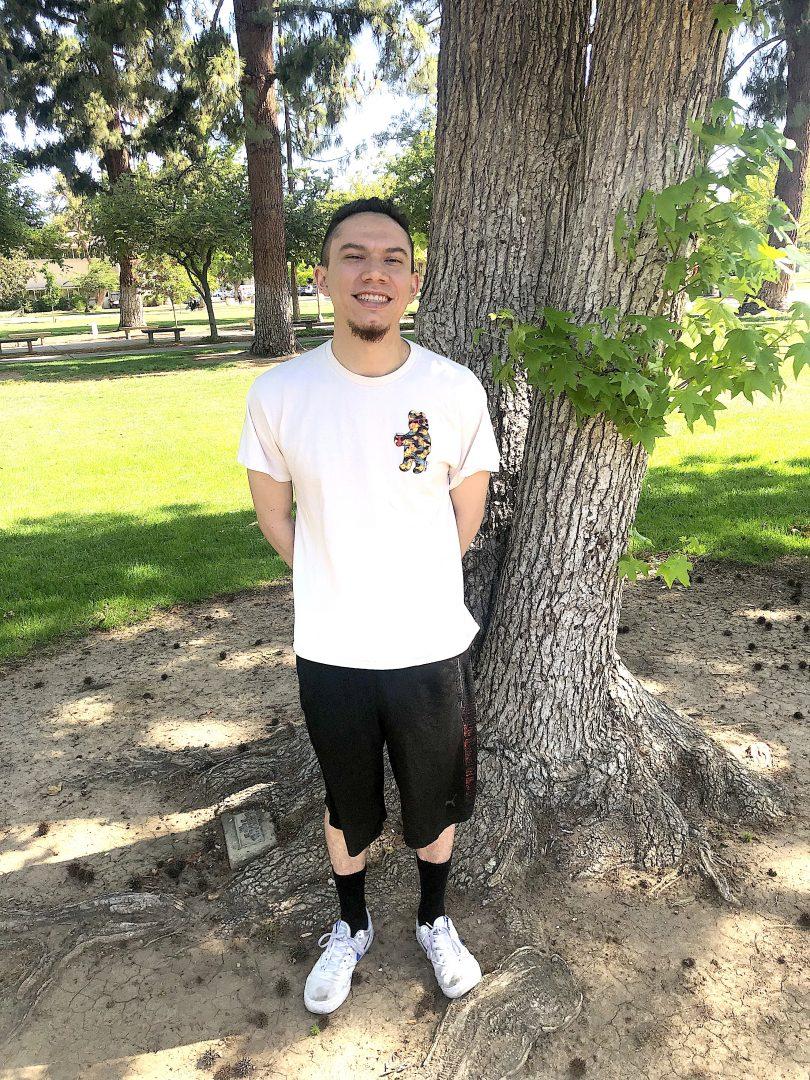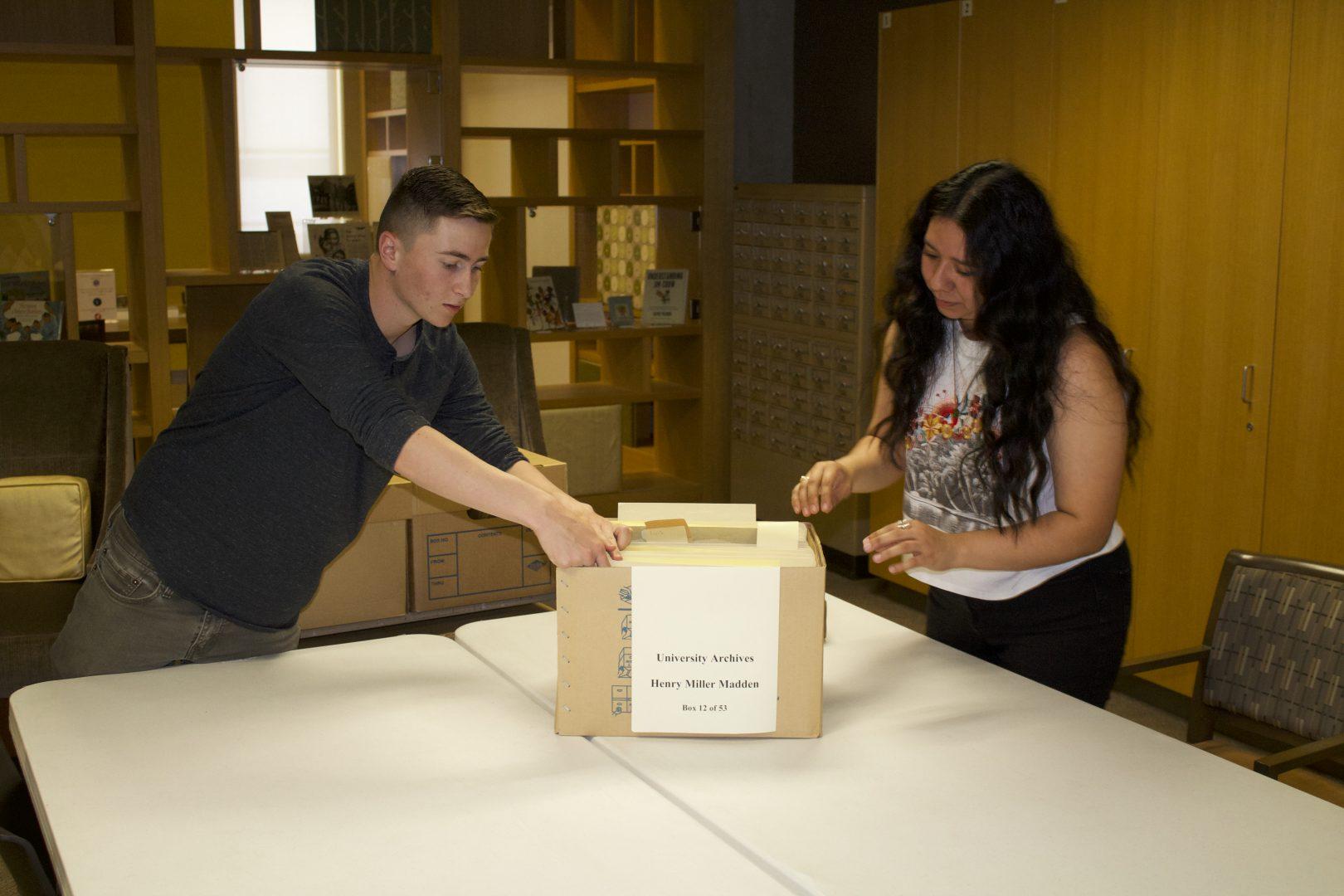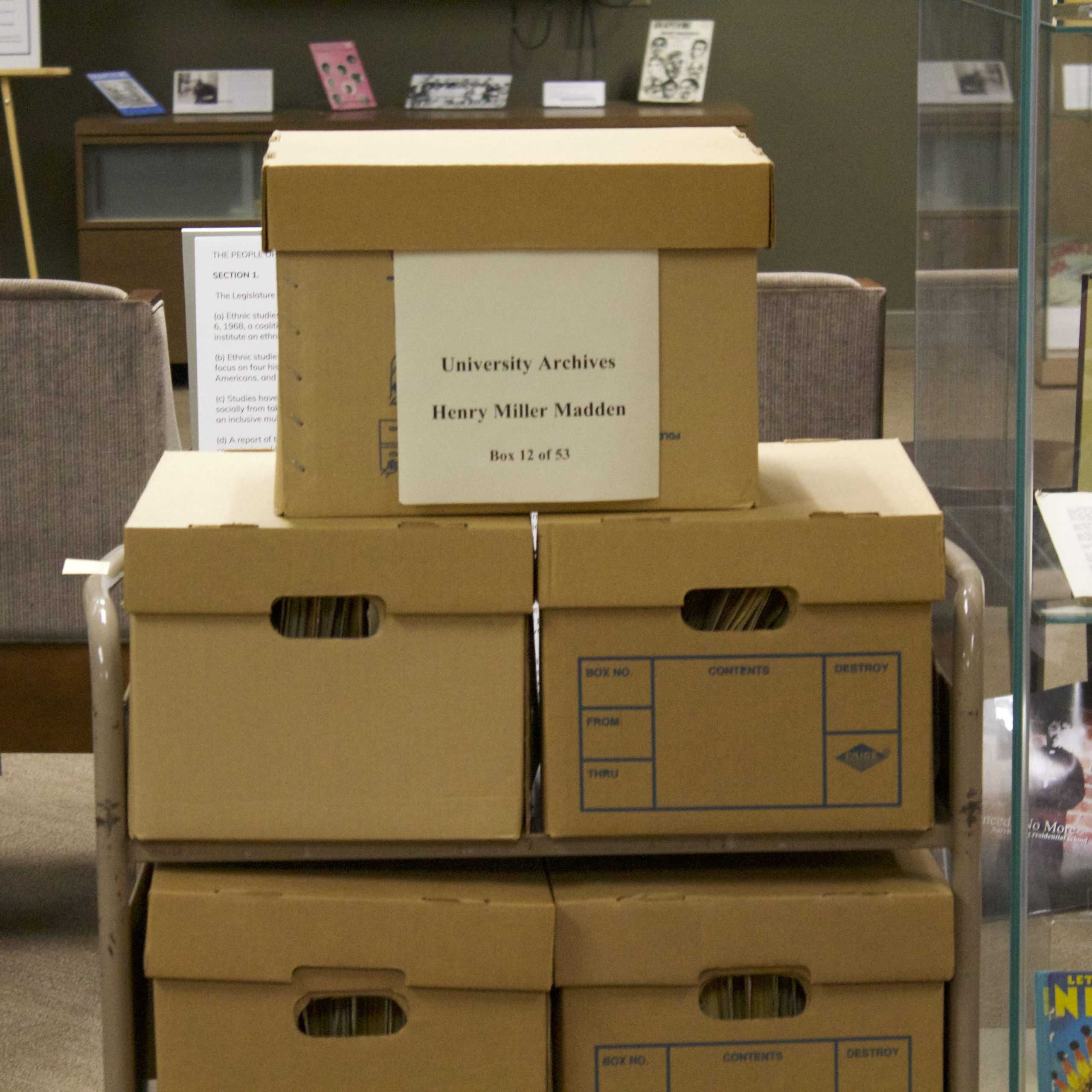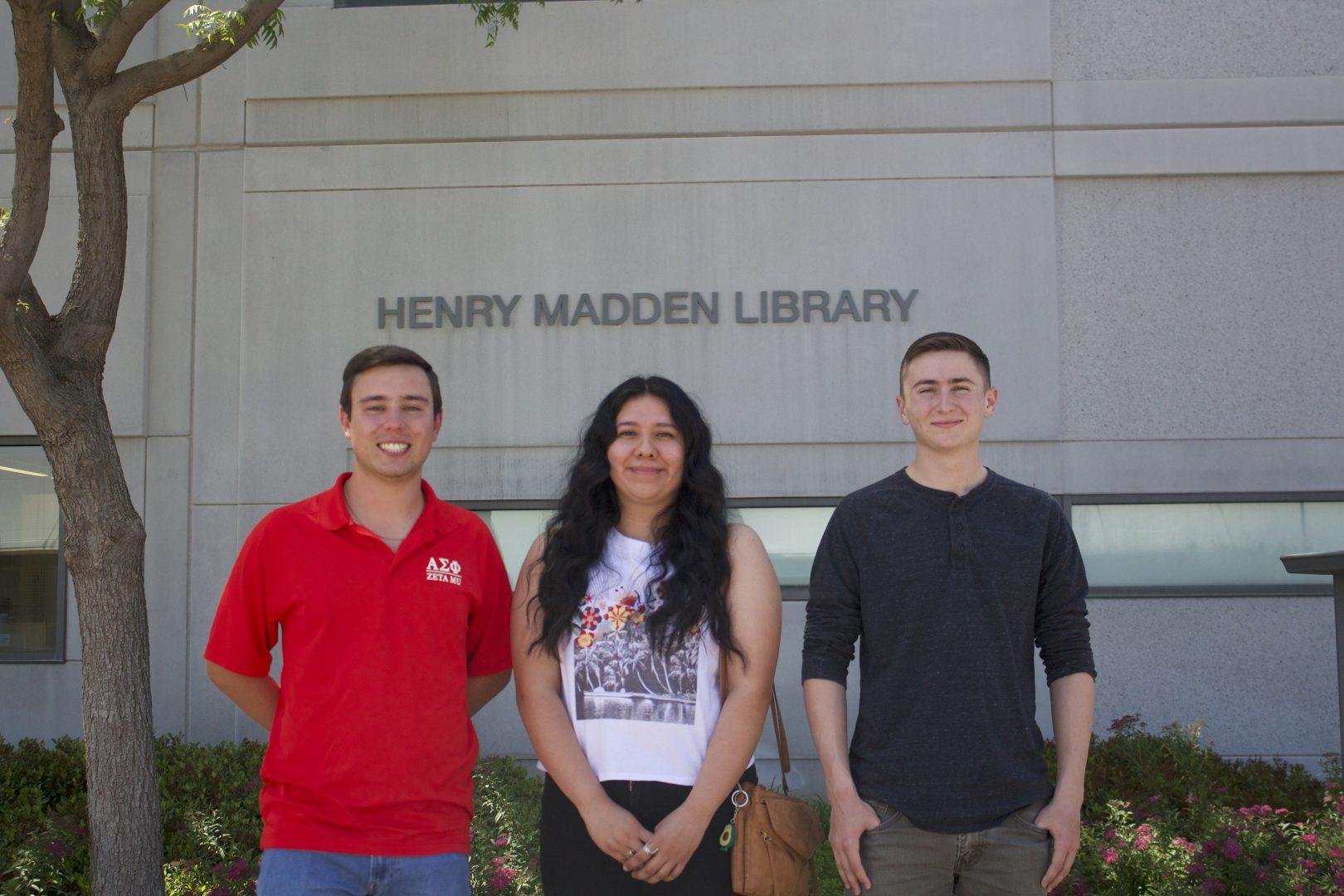When 12 Fresno State undergraduates enrolled in History 100W, they expected a normal introduction to historical research. That was until their professor, Ethan J. Kytle, was asked to restructure the class after news broke out that accused Henry Madden of antisemitic views.
Now, these 12 students are receiving college and academic credit for their part in potentially changing the name of the Henry Madden Library.
When the library task force released its report reviewing the name change of the library, Kytle’s class was credited for the work it contributed into the research process.
“Under the supervision of Drs. Ethan Kytle and Blain Roberts, the following students collectively spent 120 hours reading and taking notes on Madden’s correspondence,” the report said.
Kytle said the students “didn’t know what they were walking into” until the beginning of the semester, but knew this was an “extremely rare” opportunity in the history field.
“Collectively, what they did is make their way through thousands and thousands of letters, covering 30 years of Madden’s life, helping us make sure we covered it as thoroughly as possible,” he said.
When the class was told it’d be a part of the library task force, it was shocking for some students.
“I was a little nervous at first because it felt like for the 12 of us… it’s a lot of pressure. Potentially changing something that has been around forever,” Matthew Simpson, a student in Kytle’s class, said.
He wasn’t the only student feeling that way, but once the research process began, Simpson said it was a unique experience no other student is getting.
“Initially, I was worried because I thought it might be a lot more work than I signed up for, but with the guidance from Dr. Kytle and Dr. Roberts it was a really good experience and turned into my favorite class of the semester,” Gabriel Grieco, another student, said.

“I started out kind of skeptical, but then I realized this is not even a once in a generation type thing. This is like once in a lifetime… potentially renaming a library and being a part of that is pretty cool,” Joshua Raminha, another of Kytle’s students, said.
The class was split into two groups of six. One group went into the archives of Madden’s letters under Roberts’ supervision while another discussed and shared their findings with Kytle. Both groups alternated between the archives and class.
Kytle said the class helped focus on things he and Roberts may have overlooked, and even had input on the sections Kytle authored in the report. He highlighted most of their contributions in pages of the report that discuss Madden’s time at Fresno State.
The class also helped contribute to the report when it discussed Madden’s efforts in anti-censorship, his later views on race, his later antisemitism and Nazi references, and his “problematic” comments about ethnic studies, Kytle noted.
“That was a really important element in [the research process] that I know the task force members were very supportive of,” said Michael J. Lukens, chair of the library task force.
Kytle emphasized the scale of what the task force needed to research. He said Madden’s archives consisted of more than 100,000 documents within 53 large boxes of material that had previously been untouched.
His class was given boxes of letters from the 1950s through the 1980s, and he assigned each student a box that had hundreds to thousands of letters. Kytle noted how his students learned that one disadvantage of historical research is the amount of time and work it takes.
Many of it is “irrelevant,” and a lot of time is skimming the “boring stuff,” he added.
“[Madden] had a lifelong habit of making offensive remarks, but the offensive remarks appear amidst a sea of banal remarks. Even deep-seeded racists aren’t uttering racist comments every moment of the day,” Kytle said.
Jovana Gutierrez Camacho said that’s one “downfall” of the research process. But she shared a laugh about it with Simpson and Raminha sitting right beside her, joking about how boring it can be.
“We kind of all expected some pretty heaving stuff. Like, we expected some antisemitic, racist [letters], but most of it wasn’t. It was just someone’s mail,” Raminha said.
“I think we all [developed] respect for those who actually do that and dedicate their lives to do that because we got a little glimpse, but they do this for a very long time,” Camacho said.
Camacho, Simpson and Raminha said they put in around 13 hours in the archives. Grieco spent 10 hours. Despite the tedious work, the students said their passion for their major made it worthwhile.
“In a way, it was like time traveling back to someone’s mind because we got to read [Madden’s] mail, what he was thinking. We got to get the sense of the environment — politically, economically, socially. I thought that was one of the most coolest things I’ve ever done,” Camacho said.
She is the first generation in her family to go to college. She was going to go to a school closer to her hometown of Orange Cove, but her mentors guided and pushed her to venture out to Fresno State.

Camacho noted that her experience, not only in the task force, but at the university inspires her to be a role model for her family.
“Being [at Fresno State] all my years, and experiencing the environment and knowing that I was part of something big, made me feel like I could show that to my younger siblings and tell them ‘Hey, go here. Maybe you could be part of something big too,’” she said.
Raminha also wasn’t planning to go to Fresno State, but rather Cal Poly San Luis Obispo since it was close to his home in Paso Robles.
He wasn’t sure what to expect because in his area “the Valley is not seen well at all, and people are really snobby about it.”
After experiencing the area, he grew attached to Fresno, he said.
“There’s something unique here [at Fresno State]. There’s a lot of opportunities here,” Raminha said.
“Fresno State runs in our family. We’ve been coming here for the last 60 years… This is the only college I applied to, so if I didn’t get in here I wasn’t going to go to college,” Simpson said.
His grandma is an alumnus, as well as his dad, who was also a history major. He said he was “following in his footsteps.”
“I was never expecting this in my college career, and I’m excited that I got to be a part of this kind of history. I get to put it on my resume and bring it with me for the rest of my history career,” Simpson said.
Kytle said he was excited as a teacher to give his students an impactful opportunity and not “just something they were doing for a class.”
“It did seem like a moment where students could make a real contribution to an important historical endeavor and to do it in a meaningful way,” he said.
All 12 students from Kytle’s class credited on the library task force report:
- Taylor Abirached
- Jovana Gutierrez Camacho
- Jakob Conrad
- Harris Dolan
- Madison Eaton
- Gabriel Grieco
- Luis Padilla
- Joshua Raminha
- Ricardo Rojas-Villegas
- Matthew Simpson
- Evaghn Smith
- Maria Vargas

apart of the university library task force and its research process into the Henry Madden archives. (Adam Ricardo Solis/The Collegian)





